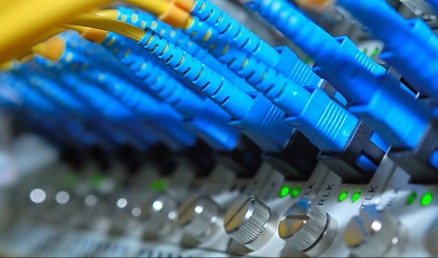FCC TV Airwaves Auction Reaps Disappointing $18.2 Billion
January 20, 2017
The Federal Communications Commission’s auction of TV airwaves, nearing its end, has brought in about $18.2 billion in bids. That figure is far less than the last sale of government licenses, due, say analysts, to a lack of interest in low-frequency television airwaves. The spectrum auction enabled TV stations to sell their airwaves, which would be repurposed for use by the mobile industry. But potential buyers are apparently more interested in airwaves that “can carry more data over short distances.”
The Wall Street Journal, which reports that participants in the auction process are barred from discussing it, says that, in contrast to this auction, the previous FCC auction in early 2015 brought in almost $45 billion in bids.
“It may also be the case that the sobriety in the current auction reflects the fact that the carriers’ balance sheets are stretched to the breaking point,” said MoffettNathanson telecom analyst Craig Moffett. FCC chairman Tom Wheeler, who steps down today [Friday], calls the auction’s benefits “indisputable,” noting that it did what it was supposed to by shifting airwaves to mobile broadband use.
Although the auction’s winners won’t be known “for a few weeks,” participants included AT&T, Verizon, Comcast and T-Mobile US. TV station owners will receive about $10 billion, a fraction of the “more than $86 billion the agency offered to pay when the auction kicked off last June.”
“The whole purpose was to buy low and sell high,” said investment banker Lawrence Chu, who advised the FCC. The auction’s proceeds (minus $5.5 billion it cost to hold it) will be deposited into the U.S. Treasury.
The auction was planned to “go multiple rounds to best match the buyers and sellers.” But, according to former Disney exec Preston Padden, who represented a coalition of TV station owners, “The broadcasters showed up, and the carriers didn’t.”
“When this started, everyone agreed this was ‘beachfront spectrum’,” he added. “The broadcasters had every reasonable basis to believe the demand was going to be there, and it just wasn’t.”
Wedbush Securities analyst James Dix reports that, “the lack of participation” from Alphabet, Facebook and Amazon also played into the disappointing results. WSJ notes that, “With new regulatory leadership coming after Friday’s presidential inauguration, potential telecom deal talks can begin and broadcasters can figure out what they want to do with unsold licenses they put on the auction block.”


No Comments Yet
You can be the first to comment!
Sorry, comments for this entry are closed at this time.